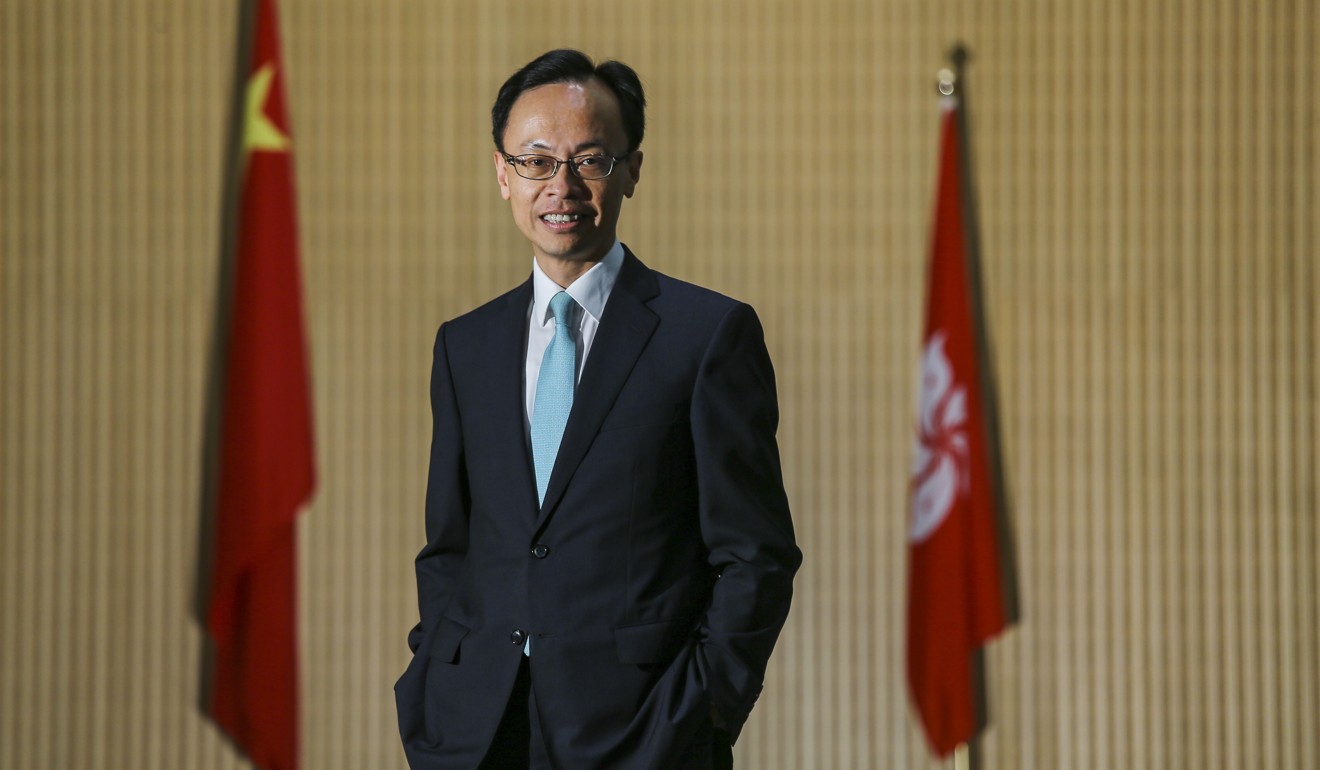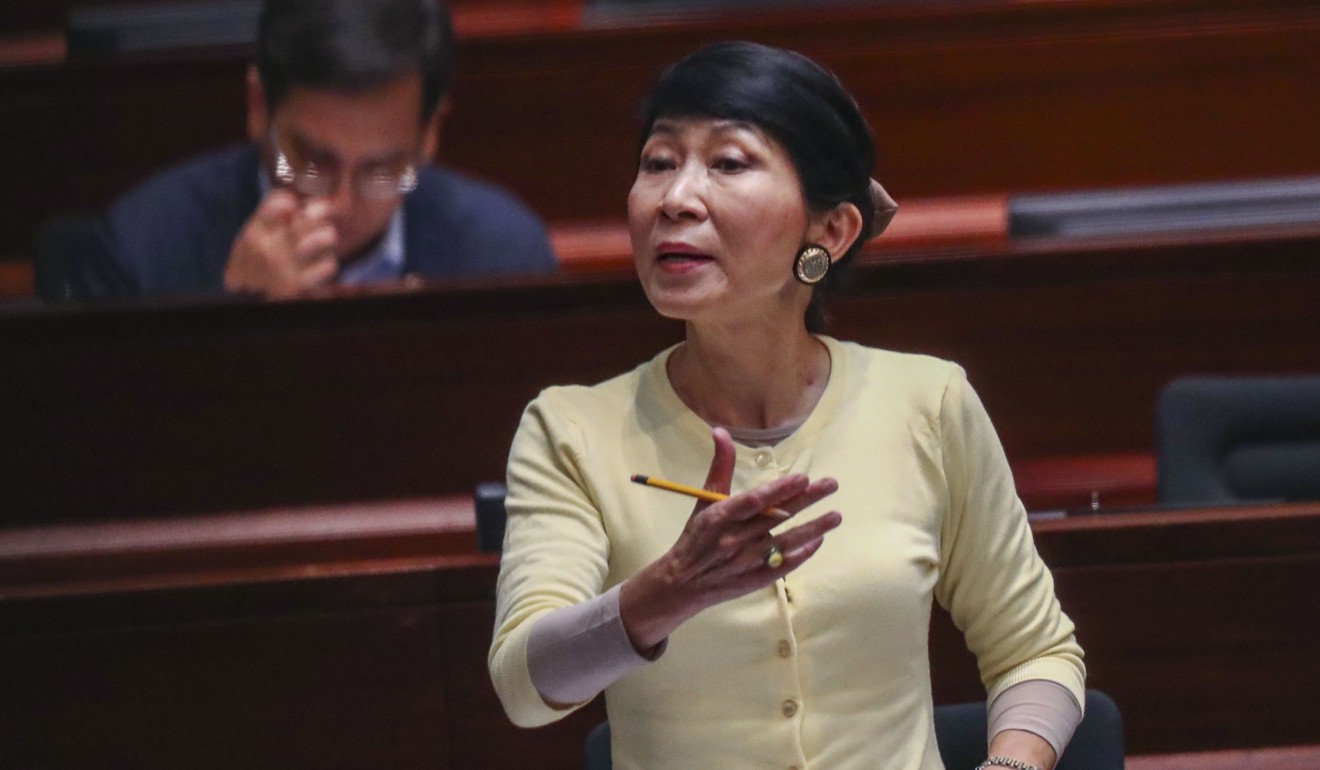
Chinese national anthem to play before Hong Kong lawmakers swear in to legislature under anti-abuse law
- Pro-democracy camp split over new insertion to bill
- One of them calls it an attempt to intimidate opposition politicians
The national anthem will be played before lawmakers swear in to Hong Kong’s legislature, under a new addition to an already controversial bill criminalising abuse of the song.
The fresh move split pro-democracy figures, one of whom said it was an attempt to intimidate opposition politicians.
China’s top legislative body initiated the new local law last year, as it inserted the national version into the city’s mini-constitution, the Basic Law, meaning the local government had to adopt it.
A source with knowledge of the matter said on Friday the new clause was only added to mirror the mainland Chinese law.
The anthem is not currently played at Legislative Council swearings-in, events which have in recent years been marked by pro-democracy lawmakers protesting, disrupting proceedings or deliberately garbling their oaths. Six elected legislators were disqualified in 2016 and 2017 over the oaths.
Secretary for Constitutional and Mainland Affairs Patrick Nip Tak-kuen has been meeting lawmakers recently to explain the plan to table the bill at Legco in January at the earliest. It would make abusing or distorting March of the Volunteers punishable by a maximum fine of HK$50,000 and three years in prison.

Article 4 of the mainland law states the anthem should be played at national occasions, including oath-taking ceremonies to pledge allegiance to the Chinese constitution.
According to an outline released by the city government in March, the mainland law will be adopted locally to make it a criminal offence to “publicly and wilfully alter” the lyrics or score, or sing it in “a distorted or derogatory” manner.
The bill would also specify that the chief executive will decree that the anthem must be performed on occasions such as National Day on October 1, and the anniversary of Hong Kong’s handover from British to Chinese rule on July 1.
Please be upstanding for China’s sign language national anthem
A source revealed on Friday that those occasions would include oath-taking ceremonies for the chief executive, the Executive Council and Legco.
“It was just to reflect the two principles of the local legislation, which are to fulfil the original intention of the national law and to take our actual circumstances into consideration,” he said.
Pro-establishment lawmakers and Democratic Party chairman Wu Chi-wai said it would be reasonable to play the national anthem before lawmakers’ oaths.
“The public would find it understandable ... I think we should keep the application of the law clear and restricted to specific occasions,” Wu said.

However, Council Front lawmaker Claudia Mo Man-ching, who convenes pro-democracy camp meetings, said playing the anthem before oaths was tantamount to “intimidating” opposition lawmakers.
“The government wants to send a strong message that ‘one country’ comes first when we talk about ‘one country, two systems’ in Hong Kong,” she said. “This, for us, or at least for me, is a kind of political pressure and intimidation.”
One country, two systems is the arrangement under which Hong Kong, while ruled by Beijing, maintains a measure of autonomy.
But Chief Secretary Matthew Cheung Kin-chung denied Mo’s allegation.
“The national anthem bill has been discussed for a long time ... I believe that with more explanation, people will understand the need for it,” he said.

